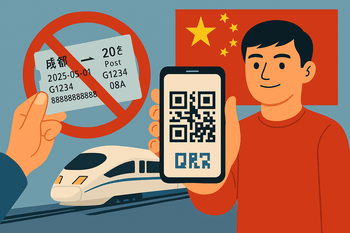
China’s rapid globalization has created a wealth of opportunities for foreigners, particularly in the fields of translation and interpretation.
With its booming economy and increasing international collaborations, the demand for skilled linguistic professionals has surged.
But what makes this profession so appealing, and how can you succeed in this thriving field? Let’s explore the details.
Understanding the Role of Translators and Interpreters
Key Differences Between Translation and Interpretation
Translation focuses on written text, requiring precision, attention to detail, and strong writing skills.
Interpretation, on the other hand, deals with spoken communication, demanding quick thinking, excellent listening skills, and the ability to convey meaning in real time.
Both roles are essential but cater to different scenarios.
Common Industries Hiring Language Professionals
Translators and interpreters are in demand across various sectors, including:
- Business and Trade: Facilitating international negotiations and contracts.
- Technology and IT: Localizing software, technical manuals, and user interfaces.
- Media and Entertainment: Translating scripts, subtitling, and interpreting live events.
- Legal and Medical Fields: Translating legal documents or interpreting during court proceedings and medical consultations.
For example, companies like Huawei and Tencent often require localization experts, while international law firms in Shanghai and Beijing frequently hire legal translators.
Why Foreigners Are in High Demand in China
Language Barriers and Economic Growth
China’s rise as an economic powerhouse has led to increased interaction with global partners.
This creates a need for professionals who can bridge linguistic and cultural gaps, especially in high-stakes industries like finance, law, and technology.
Cultural Nuances and International Relations
Foreigners bring valuable cultural insights that help Chinese businesses connect with their international counterparts.
For instance, understanding Western business etiquette or cultural preferences can be a significant advantage in negotiations.
Qualifications and Skills Needed
Language Proficiency
Fluency in Mandarin is a significant advantage, but native-level expertise in your own language is equally important.
Certifications like the HSK (Hanyu Shuiping Kaoshi) for Mandarin or TOEFL/IELTS for English can demonstrate your proficiency.
Specialized Knowledge
Expertise in niche areas such as law, medicine, or technology can set you apart.
For example, legal translators often need familiarity with Chinese and international legal systems, while medical interpreters must understand medical terminology.
Soft Skills for Success
Adaptability, cultural sensitivity, and effective communication are vital.
These skills help you navigate cultural differences and build strong professional relationships.
Types of Translation and Interpretation Jobs in China
Freelance vs. Full-Time Positions
Freelancers enjoy flexibility and the ability to work remotely, while full-time roles offer stability, benefits, and opportunities for career growth.
Platforms like Proz.com and Upwork are great for finding freelance gigs.
Corporate Translators and Interpreters
Major corporations, such as Alibaba and Lenovo, hire professionals for meetings, contracts, and presentations.
These roles often require a high level of professionalism and industry-specific knowledge.
Academic and Research Opportunities
Universities and research institutions frequently need document translation and conference interpretation.
For example, Tsinghua University often collaborates with international researchers, creating opportunities for academic translators.
Media and Entertainment Roles
The creative industry offers diverse opportunities, from dubbing films to interpreting live events.
Companies like iQIYI and Bilibili often seek professionals for subtitling and localization.
How to Find Translation and Interpretation Jobs in China
Online Job Portals and Platforms
Websites like LinkedIn, Boss Zhipin, and Proz.com are excellent starting points.
For freelance work, platforms like Gengo and Smartcat are also worth exploring.
Networking and Professional Organizations
Building connections through events and associations can open doors.
Organizations like the Chartered Institute of Linguists (CIoL) and Translators Association of China (TAC) host events and provide resources for professionals.
Recruitment Agencies Specializing in Foreign Hires
Agencies like China Global Connections and Hays China specialize in placing expats in professional roles, including translation and interpretation.
Challenges of Working as a Translator or Interpreter in China
Adapting to Local Work Culture
Understanding workplace etiquette, such as hierarchy and communication styles, is crucial.
For example, maintaining a respectful tone and avoiding direct criticism are important in Chinese professional settings.
Navigating Legal and Visa Requirements
Securing the right visa (typically a Z visa) and complying with regulations can be challenging.
You’ll need sponsorship from an employer and may need to provide proof of qualifications and work experience.
For detailed guidance, visit the China Visa Center.
Managing Expectations and Deadlines
Balancing tight deadlines with high-quality work is often part of the job.
Time management and stress management skills are essential.
Benefits of Working in China’s Translation Industry
Competitive Salaries and Perks
Language professionals in China enjoy lucrative pay, with salaries ranging from ¥15,000 to ¥30,000 per month for full-time roles, depending on experience and specialization.
Freelancers can earn ¥200–¥500 per hour for interpretation or ¥0.5–¥1.5 per word for translation.
Exposure to Global Projects
Working on international projects enhances your portfolio and provides valuable experience.
Career Growth Opportunities
China’s dynamic market offers abundant chances for advancement, especially for those who specialize in high-demand industries like technology or law.
Tips for Success in Translation and Interpretation Jobs
Continuous Learning and Skill Development
Stay sharp by learning new tools like CAT (Computer-Assisted Translation) software, such as SDL Trados or MemoQ.
These tools can improve efficiency and accuracy.
Building a Professional Network
Join industry groups and attend events to expand your contacts.
For example, the China Interpreters and Translators Association (CITA) hosts regular networking events.
Staying Updated with Industry Trends
Keep an eye on advancements in AI and machine translation.
While tools like Google Translate and DeepL are improving, human translators remain essential for nuanced and culturally sensitive work.
Future of Translation and Interpretation in China
Impact of AI and Technology
AI tools are transforming the industry, but they cannot replace the creativity and cultural understanding that human professionals bring.
For example, while AI can handle basic translations, it struggles with idiomatic expressions and emotional context.
Human Touch in Linguistic Services
The need for cultural and emotional understanding ensures a steady demand for human translators and interpreters, especially in fields like diplomacy and creative industries.
Conclusion
Translation and interpretation jobs for foreigners in China are more than just work—they’re gateways to cultural exchange, professional growth, and financial stability.
With the right skills, certifications, and approach, you can thrive in this exciting industry.
FAQs
- How fluent do I need to be in Mandarin to work as a translator in China?
Fluency in Mandarin is advantageous but not always mandatory if you’re targeting specific niches. Certifications like HSK can help demonstrate your proficiency. - What are the best platforms for finding translation jobs in China?
Websites like LinkedIn, Boss Zhipin, and Proz.com are great options. - Can I work remotely as a translator for Chinese companies?
Yes, many companies offer remote positions, especially for written translation. - Are interpretation jobs in China available for non-native English speakers?
Absolutely! As long as you’re fluent in the required languages and skilled at interpretation. - What visa requirements should I be aware of as a foreigner?
A work visa (Z visa) is usually required, and you’ll need sponsorship from an employer. Visit the China Visa Center for more details.
By addressing these aspects, you can confidently navigate the translation and interpretation industry in China and unlock its vast potential.



